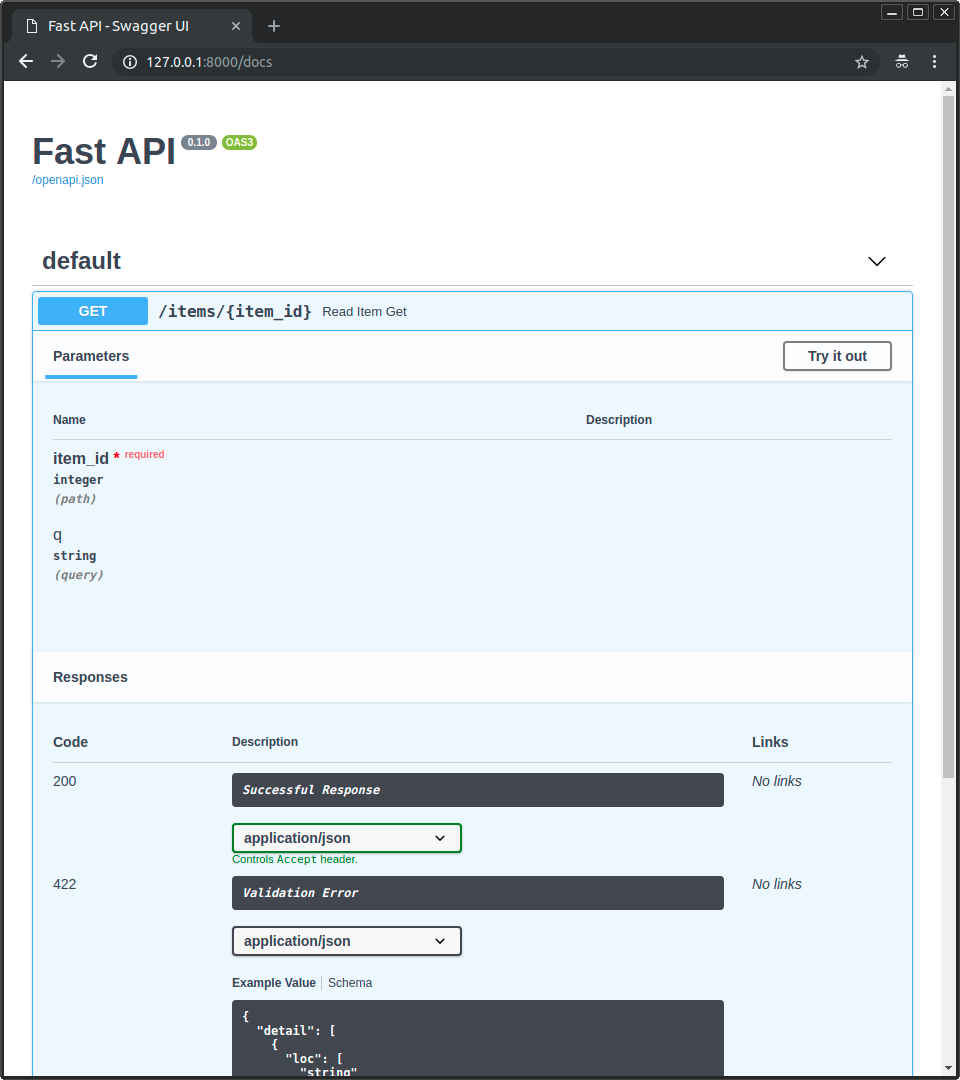- Sort Score
- Result 10 results
- Languages All
Results 1 - 10 of 98 for simpler (0.16 sec)
-
docs/en/docs/advanced/generate-clients.md
But I'll show you how to improve that next. 🤓 ## Custom Operation IDs and Better Method Names You can **modify** the way these operation IDs are **generated** to make them simpler and have **simpler method names** in the clients. In this case you will have to ensure that each operation ID is **unique** in some other way.
Plain Text - Registered: Sun May 05 07:19:11 GMT 2024 - Last Modified: Thu Apr 18 19:53:19 GMT 2024 - 10.5K bytes - Viewed (0) -
docs/en/docs/benchmarks.md
When you check the benchmarks, it is common to see several tools of different types compared as equivalent. Specifically, to see Uvicorn, Starlette and FastAPI compared together (among many other tools). The simpler the problem solved by the tool, the better performance it will get. And most of the benchmarks don't test the additional features provided by the tool. The hierarchy is like: * **Uvicorn**: an ASGI server
Plain Text - Registered: Sun May 05 07:19:11 GMT 2024 - Last Modified: Thu Apr 18 19:53:19 GMT 2024 - 3.4K bytes - Viewed (0) -
docs/en/docs/python-types.md
=== "Python 3.9+" You can use the same builtin types as generics (with square brackets and types inside): * `list` * `tuple` * `set` * `dict`Plain Text - Registered: Sun May 05 07:19:11 GMT 2024 - Last Modified: Thu Apr 18 19:53:19 GMT 2024 - 17K bytes - Viewed (0) -
docs/en/docs/tutorial/schema-extra-example.md
This new `examples` field in JSON Schema is **just a `list`** of examples, not a dict with extra metadata as in the other places in OpenAPI (described above). !!! info Even after OpenAPI 3.1.0 was released with this new simpler integration with JSON Schema, for a while, Swagger UI, the tool that provides the automatic docs, didn't support OpenAPI 3.1.0 (it does since version 5.0.0 🎉).
Plain Text - Registered: Sun May 05 07:19:11 GMT 2024 - Last Modified: Thu Apr 18 19:53:19 GMT 2024 - 11.8K bytes - Viewed (0) -
fastapi/applications.py
), deprecated( """ "openapi_prefix" has been deprecated in favor of "root_path", which follows more closely the ASGI standard, is simpler, and more automatic. """ ), ] = "", root_path: Annotated[ str, Doc( """Python - Registered: Sun May 05 07:19:11 GMT 2024 - Last Modified: Tue Apr 02 02:48:51 GMT 2024 - 172.2K bytes - Viewed (0) -
docs/en/docs/alternatives.md
They are, more or less, at opposite ends, complementing each other. Requests has a very simple and intuitive design, it's very easy to use, with sensible defaults. But at the same time, it's very powerful and customizable. That's why, as said in the official website: > Requests is one of the most downloaded Python packages of all time The way you use it is very simple. For example, to do a `GET` request, you would write: ```Python
Plain Text - Registered: Sun May 05 07:19:11 GMT 2024 - Last Modified: Thu Apr 18 19:53:19 GMT 2024 - 23.2K bytes - Viewed (0) -
fastapi/security/oauth2.py
fields `username` and `password`. All the initialization parameters are extracted from the request. Read more about it in the [FastAPI docs for Simple OAuth2 with Password and Bearer](https://fastapi.tiangolo.com/tutorial/security/simple-oauth2/). ## Example ```python from typing import Annotated from fastapi import Depends, FastAPIPython - Registered: Sun May 05 07:19:11 GMT 2024 - Last Modified: Tue Apr 02 02:48:51 GMT 2024 - 21.1K bytes - Viewed (1) -
docs/en/docs/tutorial/first-steps.md
Plain Text - Registered: Sun May 05 07:19:11 GMT 2024 - Last Modified: Thu May 02 22:37:31 GMT 2024 - 12K bytes - Viewed (0) -
fastapi/routing.py
Doc( """ Configuration passed to Pydantic to define if the response data should exclude fields set to `None`. This is much simpler (less smart) than `response_model_exclude_unset` and `response_model_exclude_defaults`. You probably want to use one of those two instead of this one, as those allow returning `None` values
Python - Registered: Sun May 05 07:19:11 GMT 2024 - Last Modified: Tue Apr 02 02:48:51 GMT 2024 - 170.1K bytes - Viewed (0) -
docs/ru/docs/tutorial/first-steps.md
 ### Альтернативная документация API Теперь перейдите по адресу <a href="http://127.0.0.1:8000/redoc" class="external-link" target="_blank">http://127.0.0.1:8000/redoc</a>.
Plain Text - Registered: Sun May 05 07:19:11 GMT 2024 - Last Modified: Thu Apr 18 19:53:19 GMT 2024 - 13.1K bytes - Viewed (0)